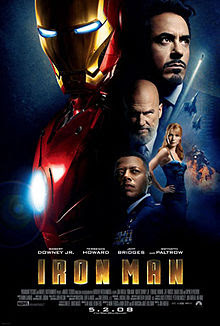Soul (2020 Film) Review
Pixar sets out to explore the meaning of life with their latest animation effort, "Soul."
Joe Gardner is a middle-school band teacher who has just gotten his big break by receiving a chance to perform onstage at a jazz club. After a series of unfortunate circumstances, Joe dies and ends up in the Great Before, a preexistence of sorts where souls receive their quirks and talents before going to Earth. Mistaken for a historic mentor, Joe is assigned to teach an irreverent soul about the joys of life.
Jamie Foxx voices Joe Gardner, the lead character of "Soul." Tina Fey voices 22, the soul Joe teaches in the film. Other cast members include Questlove, Phylicia Rashad, Daveed Diggs, Angela Bassett, and Graham Norton.
Pete Docter ("Monsters, Inc.," "Up," "Inside Out") directed "Soul" and co-wrote the script with Mike Jones and Kemp Powers, who also serves as a co-director. Dana Murray produced the film. Walt Disney Studios Motion Pictures distributed "Soul" with Pixar Animation Studios. ("Soul" is exclusively available on Disney+.)
Overall Thoughts
On the surface, "Soul" appears to be a rehash of concepts from past Pixar productions. It's narrative DNA feels particularly kindred to "Coco," "Inside Out," and "Ratatouille" in regards to how the film similarly tackles matters such as life after death and legacy, internal emotional trauma, and the drive to pursue one's passion. Fortunately, "Soul" uses Pixar's existing familiarity with these topics as a launching point to spin out and become its own special entity.
Jamie Foxx makes for such a winning main character as Joe Gardner. He's the kind of character that everyone can relate to because everyone has a passion that they're actively pursuing and everyone has either had or will have the feelings that Joe experiences throughout the film. Feelings of doubt, questioning their purpose in life, and asking how they’ve found fulfillment from it. Because Joe Gardener is the first African-American lead in a Pixar film, much has already been said about the fact that he spends a decent amount of time not in his own body. Seeing as the story requires Joe to step outside himself, both figuratively and literally, in order to find out what he has to learn, the decision wasn't bothersome. (However, that is this observer's opinion. I cannot speak for everyone else.) Tina Fey as 22 added a humorously cynical yet ultimately heartfelt presence to the story. Pixar will often partner their two main leads together and "Soul" is no exception. What's different here is that their pairing is much less comedy-centric and more about the drama in the story. Not that there isn't comedy; it's just notably diluted compared to the John Goodman and Billy Crystal or Albert Brooks and Ellen DeGeneres days.
Given Pixar's track record and how they've been able to evolve their CG animation in recent years, it's no surprise that "Soul" is a stunning feast for the eyes. Twenty-five years after the original "Toy Story," Pixar's human figures have seen quite the improvement, especially in recent years. They've gone from repurposing the same animation for their background characters to creating individual and distinct designs that make the crowd shots in New York City so rich and appealing. This world of The Great Before has the same inventiveness to it as when Docter brought to life the inside of a young girl's mind in "Inside Out." There's a creative simplicity to it that's fun to witness. When the film teases about it showing how souls get their personalities and interests, one thinks it's going to be this super complicated process, but it turns out to be a matter of a soul walking through one of the many personality booths. Though we never truly see The Great Beyond, the image of the souls on the walkway slowly moving toward this bright nothingness is something truly mesmerizing. At first, it's showcased with such ominousness, but then the film recontextualizes it and the viewer begins to appreciate the beauty of the image.
Trent Reznor and Atticus Ross' score was the perfect fit for this story. Not only are they themselves a far cry from the traditionally orchestral background of past Pixar composers, but their blending of traditional orchestra and techno musical styles suits the out-of-body experience that the main character has. Pixar's past composers have often prompted reflection of oneself with their compositions - Thomas Newman and Michael Giacchino, in particular, have done this exceptionally well in the past. With "Soul," the music is designed specifically to make the viewer reflect upon themselves and their life and, as a musical score connoisseur, Reznor and Ross succeeded wildly at that. Most films would feel incomplete without music, but "Soul" wouldn't be half as powerful without the music and, more specifically, Reznor and Ross' music.
In a year that has itself posed no shortage of questions, "Soul" is one of the rare instances of a film coming out at exactly the right time and being powerful for that. It comes with a question of its own, asking the viewer just what makes life worth living to them and also encouraging them to reflect on their life and consider how they've found fulfillment from it. Pixar has a track record of telling great stories with just as meaningful messages, but "Soul" might be their most significant one yet. It's one that doesn't speak to a certain group of humanity; it speaks to everyone. Watching this film, there's a sense that the Pixar creative team were "jazzing" themselves while making "Soul." So, boot up Disney+ and jazz along to it.
Rating: ★★★★
Conclusion
This has been my review of "Soul." Have you seen the film? If you have, share your thoughts in the comments below. I'm Dallin, your resident film fanatic, and I'll return soon with another review. Thank you for reading.





Comments
Post a Comment